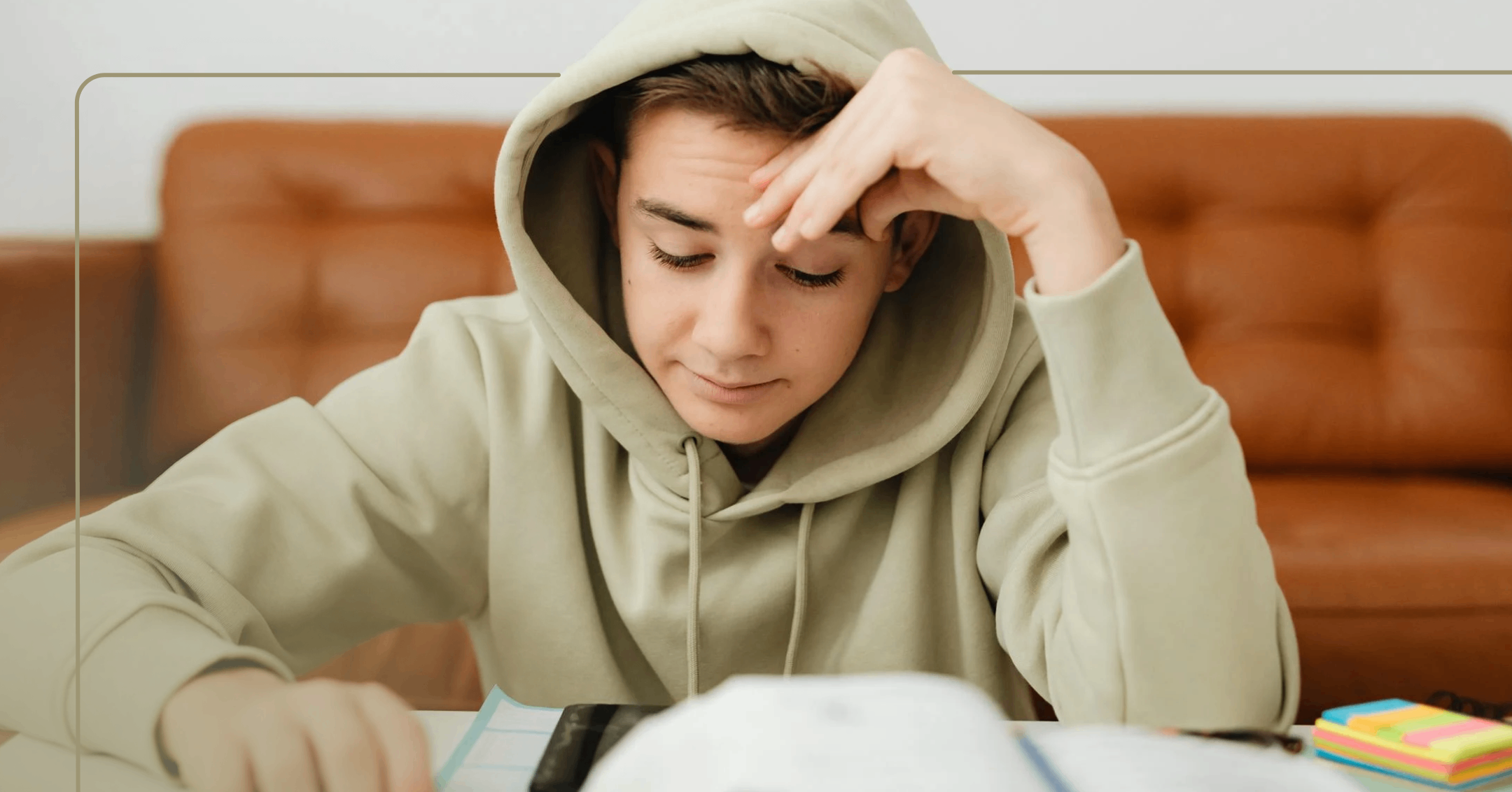Anxiety disorders cause chronic, intense worry that can impact a teen’s ability to function in daily life.
These conditions are some of the most common mental health concerns in young people, affecting nearly one-third of teens.
Treatment for anxiety disorders in teens typically includes a combination of therapy, self-management strategies, and, in some cases, medication.
Anxiety disorders are among the most common mental health conditions. And according to recent research, anxiety in teens is on the rise. Approximately 32% of youth ages 13 to 18 in the U.S. will experience an anxiety disorder during their teen years.
While everyone experiences the feeling of anxiety once in a while, this isn’t the same as having a clinical anxiety disorder. Anxiety disorders cause intense, chronic worry that’s difficult to control and negatively affects a teen’s ability to function in daily life.
Signs and symptoms of anxiety in teens
Anxiety disorders can impact people of almost every age, from very young children to older adults. However, like other mental health concerns, anxiety can manifest in teens in some unique ways.
Some of the most common signs and symptoms of anxiety in teenagers include:
Repeated, increased worry about everyday tasks
Low frustration tolerance and irritability
Problems with focus and concentration
Increased fears about what other people think of them
Heightened sensitivity to criticism (even when constructive)
Social avoidance or withdrawal
Refusal to try new things or enter new situations due to anxiety
Frequent somatic complaints (i.e. stomachaches or headaches that can’t otherwise be explained)
Academic decline and/or refusing to go to school
Trouble falling and staying asleep
Frequently seeking reassurance from others
Substance use or misuse
The care you need, when you need it
Learn how Rula can support your mental health journey
What causes anxiety for teenagers?
Anxiety disorders are believed to be caused by a combination of genetic, psychological, biological, and environmental risk factors. However, teens may be more prone to anxiety given some of the unique challenges they may be more likely to encounter at this life stage.
Hormonal changes: Puberty can bring about a variety of physiological changes in a teen’s mind and body. These shifts can make teens feel self-conscious — especially if they compare themselves to others (a phenomenon that’s often made worse by social media use).
Social perception: The social pressure to fit in can be very intense for teens. Most young people are very aware of how others perceive them and want to be accepted by their peers. So they may worry intensely about doing or saying the wrong thing for fear of being mocked or judged, and this can create debilitating social anxiety.
High expectations: Whether it’s in class, on the basketball court, on a date, or with their parents, many teens report a strong desire to maintain unrealistically high standards. Sometimes this is due to external expectations (e.g., “If you don’t get all A’s on your report card, you’re grounded.”). But this pressure can also be the result of an internal struggle due to a sense of perfectionism.
How does anxiety affect teenagers?
Left untreated, anxiety can negatively affect teenagers in several ways:
Poorer grades and academic decline
Missing out on important social experiences
Increased risk of substance use
Increased risk of co-occurring mental health conditions like depression, attention-deficit hyperactivity disorder (ADHD), and eating disorders
Ways for teenagers to cope with anxiety
Most teens experience occasional anxiety as they navigate social and academic pressures and/or uncertainties about the future. While these developmentally appropriate worries are not necessarily signs that a teen has a mental health condition, they can still be distressing.
Some self-care tips that teens can use to manage nonclinical anxiety include:
Get moving. Whether it’s a walk around the track at school, taking a yoga class, or going for a bike ride, physical activity can help reduce anxiety.
Manage stress. Just like you take care of your body every day by doing things like brushing your teeth, your mental health can benefit from daily maintenance too. So try to make time each day for activities that keep your stress level in check (e.g., journaling, listening to a funny podcast, gaming with friends, etc.).
Identify triggers. Do you know the situations or experiences that tend to make your anxiety flare? While you might not be able to avoid your triggers completely, knowing what they are can help you find ways to manage them.
Talk about it. In talking about your anxiety with trusted friends or loved ones, you might learn that some of the people in your life have navigated similar struggles. They can even share some of the coping strategies that worked for them.
Treatment options for teenage anxiety
If a teen’s anxiety persists despite their attempts to get it under control, they may need professional help. Fortunately, several effective treatment options are available:
Cognitive behavioral therapy (CBT): CBT can help teens challenge the unhelpful thoughts that may be contributing to their anxiety. It can also help them explore how these thoughts affect their feelings and behavior and can teach new coping strategies.
Exposure therapy: A form of CBT, exposure therapy allows teens to slowly and thoughtfully engage with feared stimuli or situations with the support of their therapist. Over time, this can reduce the impact of triggers.
Psychoeducation: Learning about the causes, symptoms, and effects of anxiety disorders can help teens see themselves separately from their diagnosis. This can improve their self-esteem and encourage them to stay engaged with care.
Social skills groups: If a young person is struggling with social anxiety, these groups can help them practice interacting with peers in a safe, supportive environment.
Medication: Some teens may benefit from adding medication to their anxiety disorder treatment plan. However, some anxiety medications used in adults may not be appropriate for teens. Always talk to your provider if you have questions about medication.
Many parents notice anxiety symptoms in their teens but brush them off as normal. These include increased mention of worries, changes in social behavior, and low self-esteem. These are all potential warning signs, so it’s best to talk with your teen if you notice any of these changes.

Elise Miller, MA, LPC
Clinical reviewer
Find care with Rula
While occasional anxiety is a normal part of life for most teens, this is different from having a clinical anxiety disorder. Teens with these conditions experience chronic, intense worry that can be difficult to manage without professional help. Left untreated, anxiety disorders in teens can negatively affect their ability to function at home, school, and with friends. But fortunately, with the right support, teens can learn to manage their worries and harness their strengths during this exciting but challenging phase of life.
At Rula, we’re committed to delivering a comprehensive behavioral health experience that helps people feel seen and understood so they can get back to feeling their best.
Rula makes it easier to find a licensed therapist or psychiatric provider who accepts your insurance so you don’t have to choose between affordable care and excellent care. With a diverse network of more than 15,000 providers, 24/7 crisis support, and appointments available as soon as tomorrow, we’re here to help you make progress — wherever you are on your mental health journey.
Rula's editorial process
Rula's editorial team is on a mission to make science-backed mental health insights accessible and practical for every person seeking to better understand or improve mental wellness.
Members of Rula’s clinical leadership team and other expert providers contribute to all published content, offering guidance on themes and insights based on their firsthand experience in the field. Every piece of content is thoroughly reviewed by a clinician before publishing.




